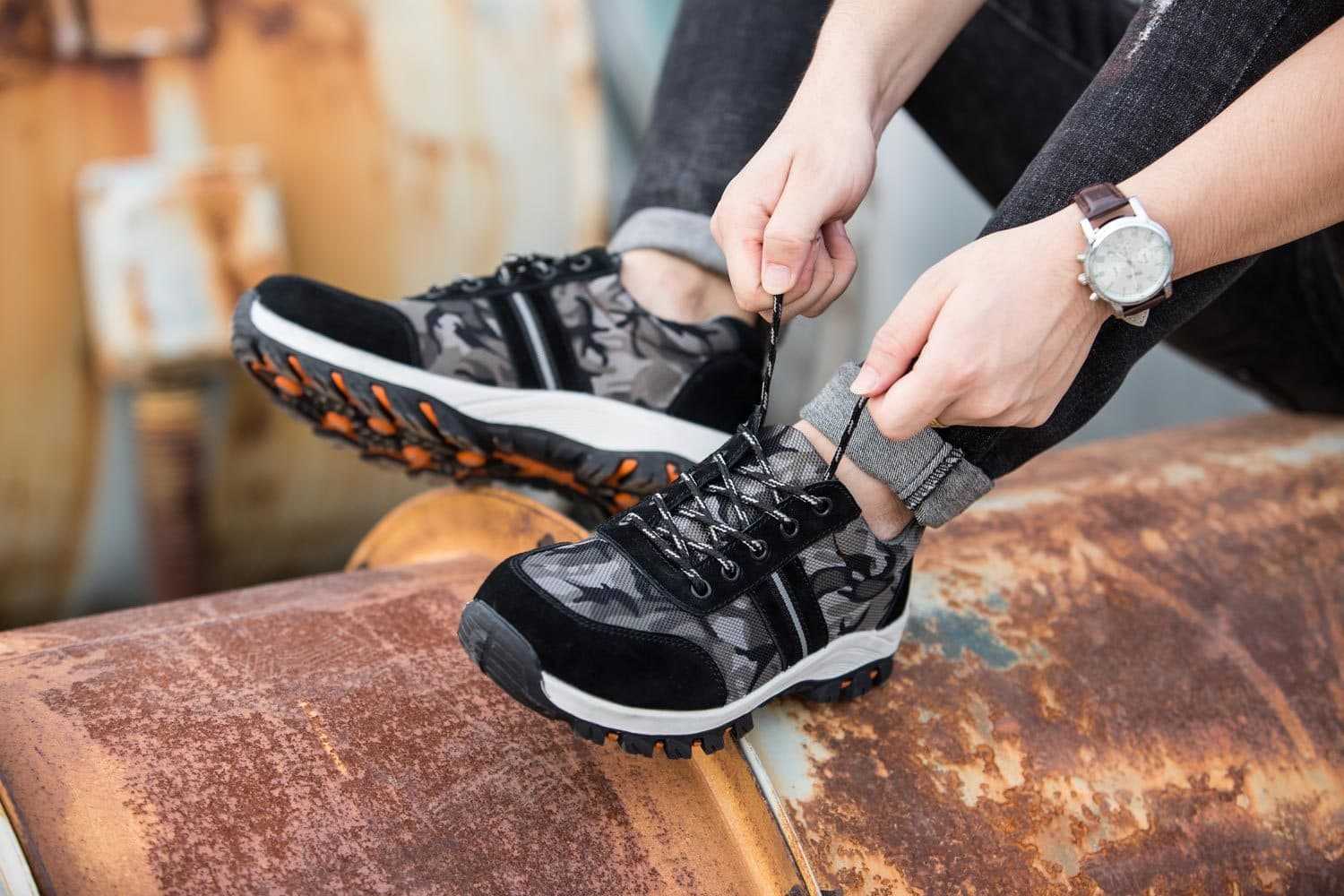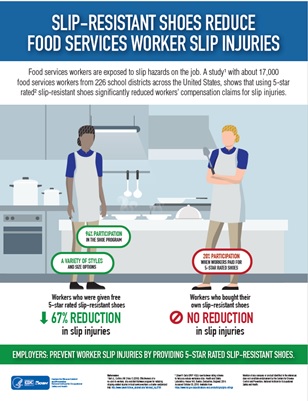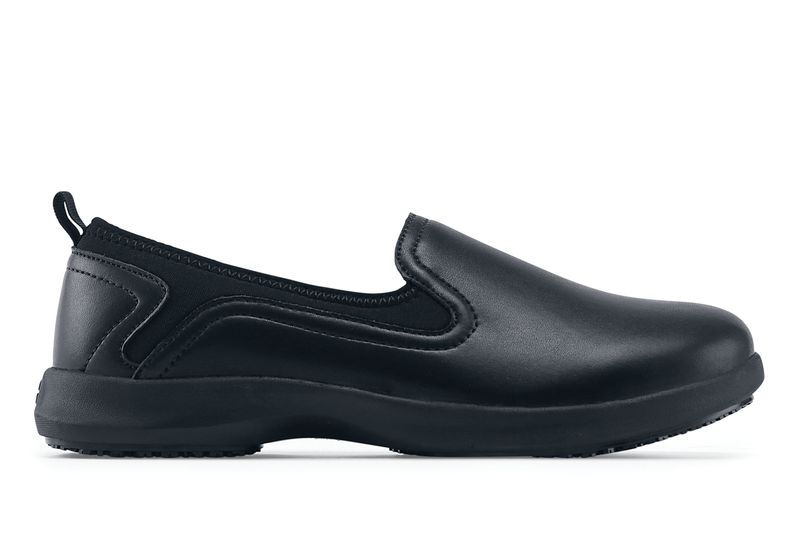Slipping Hazards in the Kitchen: Why Restaurant Workers Need Specialized Footwear
Restaurant workers face a multitude of hazards on a daily basis, with slippery floors being one of the most common and dangerous threats to their safety. Slippery floors can be caused by a variety of factors, including water, oil, and food spills, making it essential for restaurant workers to wear slip-resistant shoes for restaurant workers to prevent accidents.
In addition to slippery floors, restaurant workers also face hazards such as hot oil, heavy objects, and sharp edges. These hazards can lead to serious injuries, including burns, cuts, and broken bones. Furthermore, the consequences of these accidents can be far-reaching, resulting in lost productivity, increased workers’ compensation claims, and damage to a restaurant’s reputation.
The risk of slipping hazards is particularly high in the kitchen, where floors are often wet and greasy. According to the Occupational Safety and Health Administration (OSHA), slips, trips, and falls are among the leading causes of workplace injuries and accidents in the restaurant industry. In fact, the Bureau of Labor Statistics reports that in 2020, there were over 25,000 nonfatal injuries and illnesses involving days away from work in the food service industry, with falls, slips, and trips accounting for a significant proportion of these incidents.
Given the high risk of slipping hazards in the kitchen, it is essential for restaurant workers to wear specialized footwear that provides the necessary traction and stability to prevent accidents. Slip-resistant shoes for restaurant workers are designed to meet the unique demands of the industry, providing a safe and secure footing even in the most hazardous environments. By investing in high-quality slip-resistant shoes, restaurant workers can significantly reduce their risk of injury and ensure a safe and healthy working environment.
How to Choose the Right Slip-Resistant Shoes for Your Restaurant Job
When it comes to choosing the right slip-resistant shoes for your restaurant job, there are several factors to consider. With so many options available, it can be overwhelming to determine which shoes will provide the necessary traction and stability to keep you safe on the job. Here are some tips and guidelines to help you make an informed decision.
Material: Look for shoes made from high-quality, slip-resistant materials such as rubber or polyurethane. These materials provide excellent traction on wet and greasy floors, reducing the risk of slipping and falling.
Tread Pattern: The tread pattern on the sole of the shoe is also crucial. Look for shoes with deep grooves and lugs that can grip the floor, even in slippery conditions. A good tread pattern can make all the difference in preventing accidents.
Comfort: Comfort is also an essential factor to consider. You’ll be on your feet for long periods, so it’s crucial to choose shoes that provide adequate support and cushioning. Look for shoes with breathable materials, padded insoles, and adjustable lacing systems.
Slip-Resistance Rating: Check the slip-resistance rating of the shoes you’re considering. Look for shoes with a high slip-resistance rating, such as those that meet or exceed the ASTM F2913-19 standard.
Brand Reputation: Consider the reputation of the brand you’re considering. Look for brands that specialize in slip-resistant shoes for restaurant workers, such as Dr. Martens, New Balance, and Skechers. These brands have a proven track record of producing high-quality, slip-resistant shoes.
Reviews and Ratings: Finally, read reviews and ratings from other restaurant workers who have worn the shoes. This can give you a good idea of how well the shoes perform in real-world conditions.
By considering these factors, you can choose the right slip-resistant shoes for your restaurant job, reducing the risk of accidents and injuries, and ensuring a safe and healthy working environment.
Top-Rated Slip-Resistant Shoes for Restaurant Workers: A Review of the Best Brands
When it comes to choosing the right slip-resistant shoes for restaurant workers, there are many options available. To help you make an informed decision, we’ve reviewed and compared some of the top-rated slip-resistant shoes for restaurant workers, including brands such as Dr. Martens, New Balance, and Skechers.
Dr. Martens Ironbridge: The Dr. Martens Ironbridge is a popular choice among restaurant workers. With its rugged outsole and slip-resistant tread pattern, this shoe provides excellent traction on wet and greasy floors. The Ironbridge also features a breathable mesh upper and a comfortable, cushioned insole. (Rating: 4.5/5)
New Balance 626v2: The New Balance 626v2 is another top-rated option for restaurant workers. This shoe features a slip-resistant rubber outsole and a comfortable, supportive upper. The 626v2 also meets or exceeds the ASTM F2913-19 standard for slip resistance. (Rating: 4.7/5)
Skechers Work: Relaxed Fit – Soft Stride: The Skechers Work: Relaxed Fit – Soft Stride is a great option for restaurant workers who need a comfortable, slip-resistant shoe. This shoe features a soft, breathable upper and a slip-resistant outsole with a unique tread pattern. (Rating: 4.6/5)
Other top-rated brands for slip-resistant shoes for restaurant workers include Dansko, Vans, and Timberland. When choosing a slip-resistant shoe, it’s essential to consider factors such as material, tread pattern, and comfort. By investing in a high-quality slip-resistant shoe, restaurant workers can reduce the risk of accidents and injuries, and improve overall job satisfaction.
In addition to the brands mentioned above, there are many other options available for slip-resistant shoes for restaurant workers. When choosing a shoe, it’s essential to read reviews and ratings from other restaurant workers to get a sense of how well the shoe performs in real-world conditions. By doing your research and investing in a high-quality slip-resistant shoe, you can ensure a safe and healthy working environment.
The Science Behind Slip-Resistance: Understanding the Technology Behind Non-Slip Shoes
Slip-resistant shoes for restaurant workers are designed to provide traction and stability on slippery floors, reducing the risk of accidents and injuries. But have you ever wondered how these shoes actually work? In this section, we’ll delve into the technology and materials used in slip-resistant shoes, and explore the science behind their slip-resistance.
Rubber Compounds: The Heart of Slip-Resistance
The key to slip-resistance lies in the rubber compounds used in the shoe’s outsole. These compounds are specifically designed to provide traction on wet and greasy surfaces. The rubber is formulated to be soft and flexible, allowing it to conform to the floor’s surface and grip it securely. This grip is what prevents slipping and falling.
Tread Patterns: The Secret to Traction
The tread pattern on the shoe’s outsole is also crucial to its slip-resistance. The tread pattern is designed to channel water and other liquids away from the foot, allowing the shoe to maintain contact with the floor. The tread pattern also provides additional grip, helping to prevent slipping and falling.
Other Features: The Supporting Cast
In addition to rubber compounds and tread patterns, slip-resistant shoes often feature other technologies that enhance their slip-resistance. These may include features such as lugs, which provide additional grip, and flex grooves, which allow the shoe to flex and conform to the floor’s surface.
Slip-Resistant Materials: The Future of Non-Slip Shoes
Researchers are continually developing new materials and technologies to improve the slip-resistance of shoes. These may include advanced rubber compounds, nanomaterials, and other innovative materials. As these technologies evolve, we can expect to see even more effective slip-resistant shoes for restaurant workers.
By understanding the technology and materials used in slip-resistant shoes, restaurant workers can make informed decisions about the shoes they wear. By choosing shoes with advanced slip-resistant technologies, restaurant workers can reduce the risk of accidents and injuries, and improve overall job satisfaction.
Restaurant Safety Regulations: What You Need to Know About Slip-Resistant Footwear
Restaurant safety regulations are in place to protect workers from hazards and ensure a safe working environment. One crucial aspect of these regulations is the requirement for slip-resistant footwear. In this section, we’ll explore the safety regulations and standards that restaurants must follow, and how slip-resistant shoes can help meet these standards.
OSHA Guidelines: The Foundation of Restaurant Safety
The Occupational Safety and Health Administration (OSHA) sets guidelines for workplace safety, including restaurants. OSHA requires employers to provide a safe working environment, which includes ensuring that workers wear slip-resistant shoes to prevent slipping and falling hazards.
Industry-Specific Regulations: Additional Safety Measures
In addition to OSHA guidelines, the restaurant industry has its own set of regulations and standards. For example, the National Restaurant Association’s ServSafe program provides guidelines for restaurant safety, including the use of slip-resistant shoes.
Slip-Resistant Shoes: Meeting Safety Standards
Slip-resistant shoes for restaurant workers are designed to meet or exceed these safety standards. By wearing slip-resistant shoes, restaurant workers can reduce the risk of accidents and injuries, and help their employers meet safety regulations.
Compliance and Enforcement: The Importance of Slip-Resistant Shoes
Restaurants that fail to comply with safety regulations, including the use of slip-resistant shoes, can face fines and penalties. By investing in high-quality slip-resistant shoes, restaurants can ensure compliance with safety regulations and avoid costly penalties.
Slip-Resistant Shoes for Restaurant Workers: A Key Component of Workplace Safety
In conclusion, slip-resistant shoes are a critical component of workplace safety in restaurants. By understanding the safety regulations and standards that restaurants must follow, restaurant workers can make informed decisions about the shoes they wear. By choosing slip-resistant shoes that meet or exceed safety standards, restaurant workers can reduce the risk of accidents and injuries, and help their employers maintain a safe and healthy working environment.
Slip-Resistant Shoes for Specific Restaurant Roles: Finding the Right Fit
Different restaurant roles come with unique challenges and requirements. Chefs, servers, and dishwashers, for example, face distinct hazards and need slip-resistant shoes that cater to their specific needs. In this section, we’ll explore the specific requirements of different restaurant roles and recommend slip-resistant shoes that fit the bill.
Chefs and Cooks: Heat-Resistant and Slip-Resistant Shoes
Chefs and cooks work in hot and fast-paced environments, where spills and splatters are common. They need slip-resistant shoes that can withstand high temperatures and provide excellent traction on greasy floors. Look for shoes with heat-resistant materials, such as rubber or polyurethane, and aggressive tread patterns that can grip slippery surfaces.
Servers and Bartenders: Comfort and Support for Long Shifts
Servers and bartenders are on their feet for long periods, often navigating tight spaces and slippery floors. They need slip-resistant shoes that provide comfort, support, and stability. Look for shoes with cushioning, arch support, and breathable materials that can keep feet cool and dry.
Dishwashers and Kitchen Staff: Waterproof and Easy-to-Clean Shoes
Dishwashers and kitchen staff work in wet and humid environments, where water and soap can make floors slippery. They need slip-resistant shoes that are waterproof, easy to clean, and can withstand harsh chemicals. Look for shoes with waterproof membranes, such as Gore-Tex or similar technology, and slip-resistant outsoles that can grip wet floors.
Other Restaurant Roles: Finding the Right Fit
Other restaurant roles, such as hosts, hostesses, and management, may not face the same level of hazards as kitchen staff, but still need slip-resistant shoes that provide comfort and support. Look for shoes that are stylish, comfortable, and provide excellent traction on slippery floors.
Slip-Resistant Shoes for Restaurant Workers: A One-Size-Fits-All Solution?
While different restaurant roles have unique requirements, there are some slip-resistant shoes that can cater to multiple roles. Look for shoes that provide excellent traction, comfort, and support, and can withstand the demands of a busy restaurant environment. By choosing the right slip-resistant shoes, restaurant workers can reduce the risk of accidents and injuries, and improve overall job satisfaction.
Beyond Slip-Resistance: Additional Features to Look for in Restaurant Work Shoes
While slip-resistance is a critical feature in restaurant work shoes, it’s not the only factor to consider. Restaurant workers need shoes that provide comfort, support, and durability to ensure they can perform their jobs safely and efficiently. In this section, we’ll explore the importance of additional features in restaurant work shoes and how they can impact overall performance and safety.
Comfort: A Key Component of Restaurant Work Shoes
Restaurant workers are on their feet for long periods, often in hot and humid environments. They need shoes that provide comfort and cushioning to reduce fatigue and discomfort. Look for shoes with breathable materials, such as mesh panels, and cushioning systems that absorb shock and provide support.
Support: Reducing the Risk of Injuries and Strains
Restaurant workers often lift heavy objects, bend, and twist, which can put strain on their feet and ankles. They need shoes that provide support and stability to reduce the risk of injuries and strains. Look for shoes with arch support, ankle stability, and a low center of gravity to help prevent slips and falls.
Durability: Withstanding the Demands of a Busy Restaurant
Restaurant workers need shoes that can withstand the demands of a busy restaurant environment. They need shoes that are durable, easy to clean, and resistant to chemicals and oils. Look for shoes with high-quality materials, such as leather or synthetic materials, and construction that can withstand heavy use.
Slip-Resistant Shoes for Restaurant Workers: A Holistic Approach to Safety
By considering additional features beyond slip-resistance, restaurant workers can ensure they have shoes that provide comprehensive protection and support. By choosing shoes that provide comfort, support, and durability, restaurant workers can reduce the risk of injuries and accidents, and improve overall job satisfaction. Remember, slip-resistant shoes for restaurant workers are not just about preventing slips and falls, but about providing a safe and healthy working environment.
Investing in Safety: Why Slip-Resistant Shoes Are Worth the Investment for Restaurant Workers
When it comes to restaurant work, safety should always be the top priority. Slip-resistant shoes for restaurant workers are a crucial investment for any restaurant, as they can help prevent injuries, reduce workers’ compensation claims, and improve overall job satisfaction. In this section, we’ll explore the long-term benefits of investing in high-quality slip-resistant shoes and why they’re worth the investment for restaurant workers.
Reduced Injuries and Accidents
Slip-resistant shoes can significantly reduce the risk of injuries and accidents in the kitchen. By providing traction and stability, these shoes can help prevent slips, trips, and falls, which are among the most common causes of workplace injuries. By investing in slip-resistant shoes, restaurants can reduce the risk of injuries and accidents, and create a safer working environment for their staff.
Increased Productivity
When restaurant workers feel safe and confident in their footwear, they’re more productive and efficient. Slip-resistant shoes can help reduce fatigue and discomfort, allowing workers to focus on their tasks without worrying about their safety. By investing in slip-resistant shoes, restaurants can improve productivity and efficiency, and provide better service to their customers.
Improved Job Satisfaction
Slip-resistant shoes can also improve job satisfaction among restaurant workers. When workers feel safe and supported, they’re more likely to be satisfied with their jobs and provide better service to customers. By investing in slip-resistant shoes, restaurants can improve job satisfaction, reduce turnover rates, and create a more positive work environment.
A Worthwhile Investment
Investing in slip-resistant shoes for restaurant workers is a worthwhile investment for any restaurant. By providing a safe and healthy working environment, restaurants can reduce injuries, improve productivity, and increase job satisfaction. With the long-term benefits of slip-resistant shoes, restaurants can create a positive and productive work environment that benefits both their staff and their customers.








